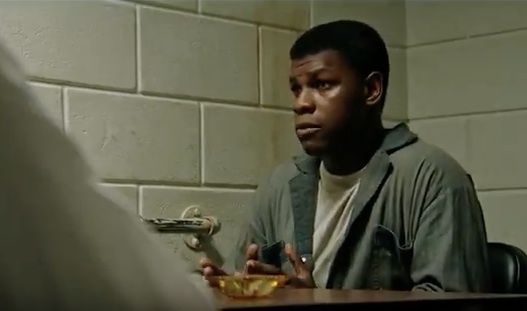Kathryn Bigelow’s new film Detroit chronicles the riots that inflamed the city in July 1967. They were a defining episode in the troubled history of race relations in the US: protests by black residents against a police raid in this effectively segregated city spilled over into five days of unrest. The National Guard were called to quell the violence that left more than 40 dead, mostly African Americans.
Bigelow is a remarkable director, one of the finest in the US today. From the high style of the vampire movie Near Dark to the adrenalised delirium of Point Break, Bigelow managed that rare trick of retaining her own voice while working within the system. Her work of late is ostensibly more ‘serious’, turning away from pulp sources to real-life subject matter like the Iraq war of The Hurt Locker or the hunt for Osama bin Laden in Zero Dark Thirty.
But across all her work is an immersive ferocity, a mighty talent for staging action and a fascination with violence, both its bloody consequences and its queasy appeal. Detroit boasts many moments of the director on top form, but is an uneven, vaguely frustrating movie that reveals as much about the limitations as the expressive thrill of Bigelow’s approach.
Introducing us to the tinderbox atmosphere of Detroit on the brink of violent protest, the film is terrific. Through short, fragmentary scenes, Bigelow offers a portrait of the city that is sprawling, panoramic, and echoes the urgent quasi-documentary style of The Hurt Locker (they share a cinematographer in Barry Ackroyd). It’s blisteringly vivid film-making that plants us in the Detroit of 50 years ago with keen immediacy.
It’s as gruelling a depiction of police-instigated race violence as I can think of, and of course finds a contemporary echo in the tragedies of our own Black Lives Matter era
The film then focuses on its central episode. Taking shelter from the disturbances, a band of promising young soul musicians called The Dramatics hole up in the annex of the Algiers Motel. There, they hang out with some young African American men and two white women. But when one of the guests fires a starter pistol out of the window, the cops and National Guardsmen gathered outside storm the hotel. A long, tense, and hard-hitting sequence follows in which the cops taunt and brutalise these young black men. Looking on helplessly is black security guard (John Boyega), unnerved and disgusted by the violence (orchestrated by Will Poulter’s patrolman) but unable to intervene.










